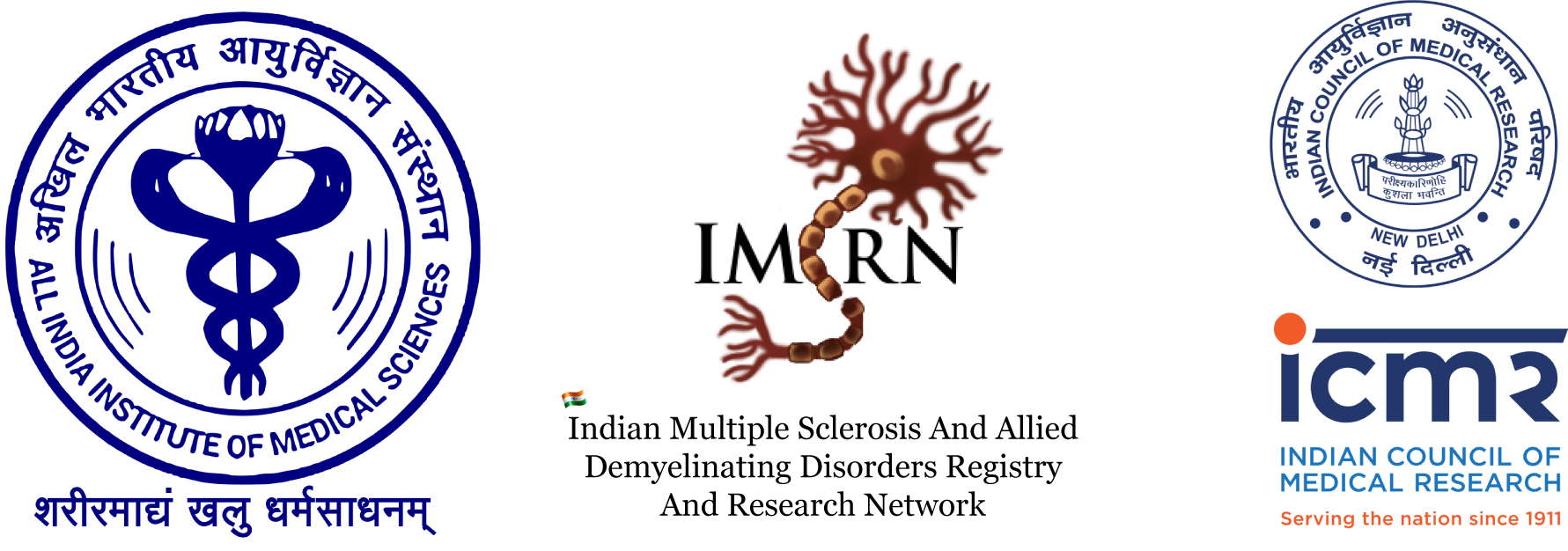Indian Multiple Sclerosis and Allied Demyelinating Disorders Registry and Research Network (IMSRN)
Multiple sclerosis (MS) is one of the most common inflammatory demyelinating disease of the Central Nervous System (CNS) and is generally believed to be autoimmune in origin. Although exact prevalence in India is not well known, it is estimated to be anything between 20-40/100,000. Other allied demyelinating disorders in the continuum of MS include Neuromyelitis Optica spectrum disorder (NMOSD), myelin oligodendrocyte glycoprotein antibody (MOG) associated disease, optic neuritis (ON) alone or as a part of MS, NMOSD, MOG and acute disseminated encephalomyelitis (ADEM).
The IMSRN will be the first Indian nationwide database of MS and allied demyelinating disorders and the first dedicated expert research network focusing on these disorders funded by the Indian Council of Medical Research (ICMR) New Delhi. This will create an organized system for the data collection, storage, retrieval, analysis, and dissemination of information on MS and related disorders. There is major need to get an insight into disease profile and outcomes of our patients as well as plan research initiatives in various domains of pathophysiology, causation, management and rehabilitation on these disorders. This will help estimate and understand our disease burden, disease phenotypes, disease behaviour, drug efficacy, adverse effects, pregnancy outcomes, and long-term disease outcomes of our patients. The Registry and Research Network will pave way for bringing experts together and generate ideas and research proposals focused on disease pathophysiology, aetiology, imaging, management and outcomes. Research would focus on our country needs and priorities. This will help create a network of cohorts, standardized data collection, identify and prioritise research questions, encourage collection of physician- and patient-reported outcome, encourage technological innovation and provide sustainable funding and create an immense opportunity for global impact and collaboration.

Research in context
Basic Research: Immunology, molecular pathways, genetics
Clinical research: Diagnostic, prognostic, outcomes, disease behavior
Observational and Interventional studies on disease behaviour and new therapeutic targets including randomised controlled trials
Biomarkers: serum, saliva, stool, CSF as diagnostic and prognostic tools
Imaging research: disease activity, disease progression, volume loss, new imaging methods for diagnostic and prognostic importance
